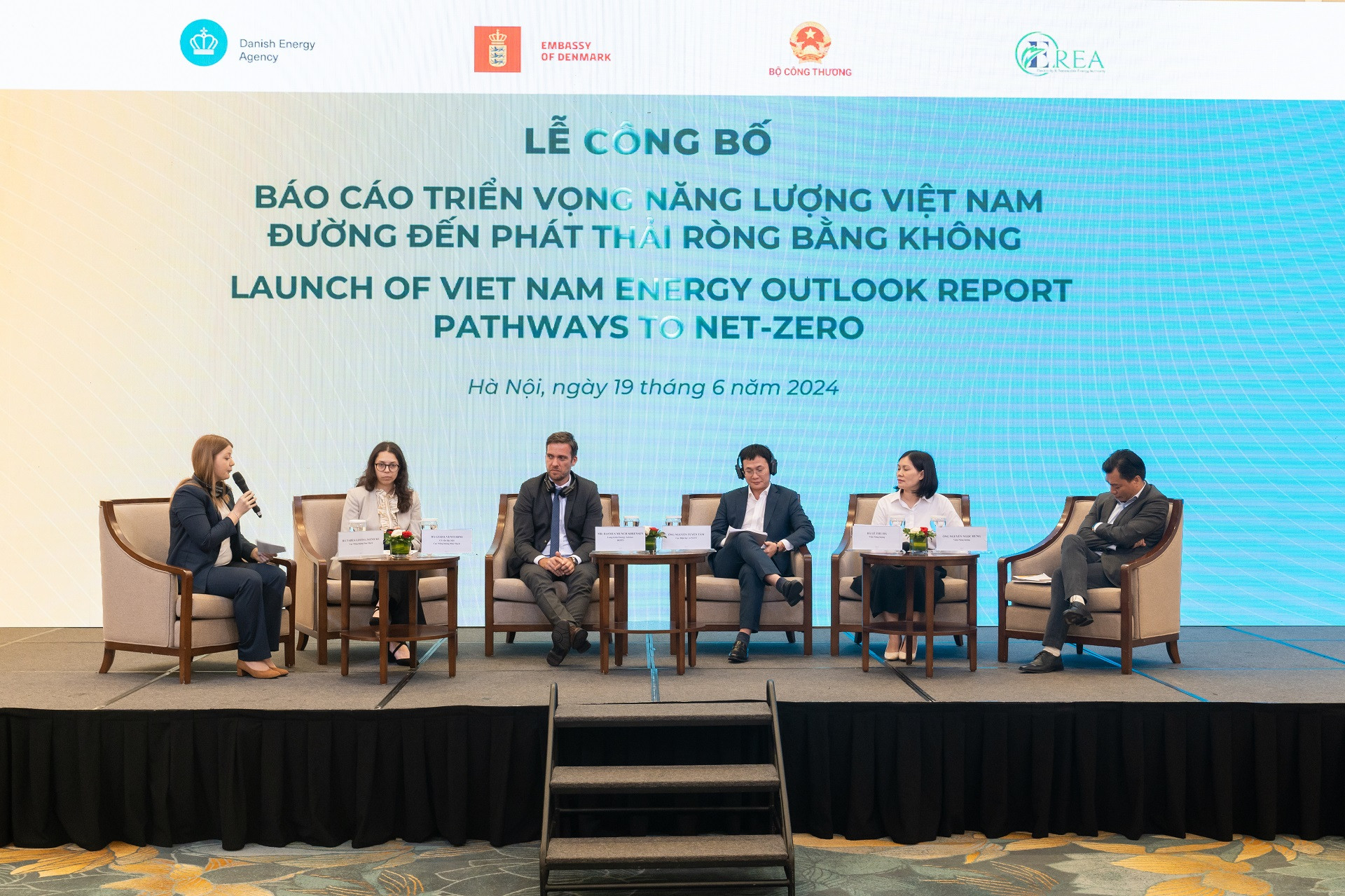The Vietnam Energy Outlook – Pathway to Net Zero (EOR-NZ) report, jointly compiled by the Electricity and Renewable Energy Authority of Vietnam, the Danish Energy Agency (DEA) and the Embassy of Denmark, was just released on June 19, 2024.
One of the key findings of the report shows that achieving Vietnam's carbon neutrality target by 2050 is not only technically feasible but also the most cost-effective scenario.
However, to achieve this target, Vietnam's CO₂ emissions need to peak by 2030 and the green energy transition needs to be implemented urgently and at a faster pace than before.
This report is the fourth publication in the series of Vietnam Energy Outlook Reports developed within the framework of the Vietnam - Denmark Energy Partnership Program.
This is a long-term partnership program between Vietnam and Denmark in the field of green energy transition.
The report presents development scenarios for Vietnam's energy system to 2050, focusing on analyzing realistic pathways for Vietnam to achieve its commitment to net zero emissions by 2050.
The report’s message is clear: the best and most cost-effective option to support Vietnam’s sustainable growth is to scale up solar and wind power, as well as electrify the transport and industrial sectors.
It is important to accelerate the green energy transition in Vietnam as soon as possible to avoid unnecessary large costs.
In particular, the report also provides specific recommendations on how Vietnam can achieve its climate neutrality target by 2050 and ensure CO₂ emissions peak by 2030.
“Vietnam and Denmark share ambitious climate goals. The Vietnam Energy Outlook – Pathway to Net Zero Emissions report demonstrates the two countries’ collaborative efforts in the green transition and addressing climate change. The report shows that Vietnam has a strong renewable energy potential and that the green transition will be a driving force for economic growth, energy security and sustainable development for the whole society,” said Kristoffer Böttzauw, Director General of the Danish Energy Agency.

Danish Ambassador to Vietnam, Mr. Nicolai Prytz, added: “To achieve the goal of net zero emissions, Vietnam needs to make rapid, strong and sustainable efforts. This is not only important to address the growing energy demand but also to attract foreign direct investment as access to renewable energy becomes increasingly important in investment decisions.”
With huge potential for solar power, onshore and offshore wind power, Vietnam is well-positioned to transition its energy sector from fossil fuels to renewable energy and take advantage of its national resources.
The report shows that Vietnam can cost-effectively green-transform and achieve its net-zero emissions target by 2050 through scaling up renewable energy, electrifying industry and transport, and reducing its dependence on imported energy.
According to the report's analysis, to peak emissions by 2030 and become climate neutral by 2050, an additional 56 gigawatts of renewable electricity (17 GW of onshore wind and 39 GW of solar) would be needed by 2030.
“Any delay in the transition will result in unnecessary costs due to the increasing impacts of climate change. Integrating a large proportion of variable power sources into the grid requires decisive action,” the report said.
The report also shows that, in the coming time, Vietnam's coal power plants need to become more flexible so that when necessary, they can reduce the capacity of coal power sources to prioritize green power sources to the grid, while still ensuring the necessary backup power until storage and other solutions can be deployed.
Source: https://vietnamnet.vn/chuyen-doi-nang-luong-xanh-la-khoan-dau-tu-tot-nhat-cho-viet-nam-2293548.html






































































































Comment (0)